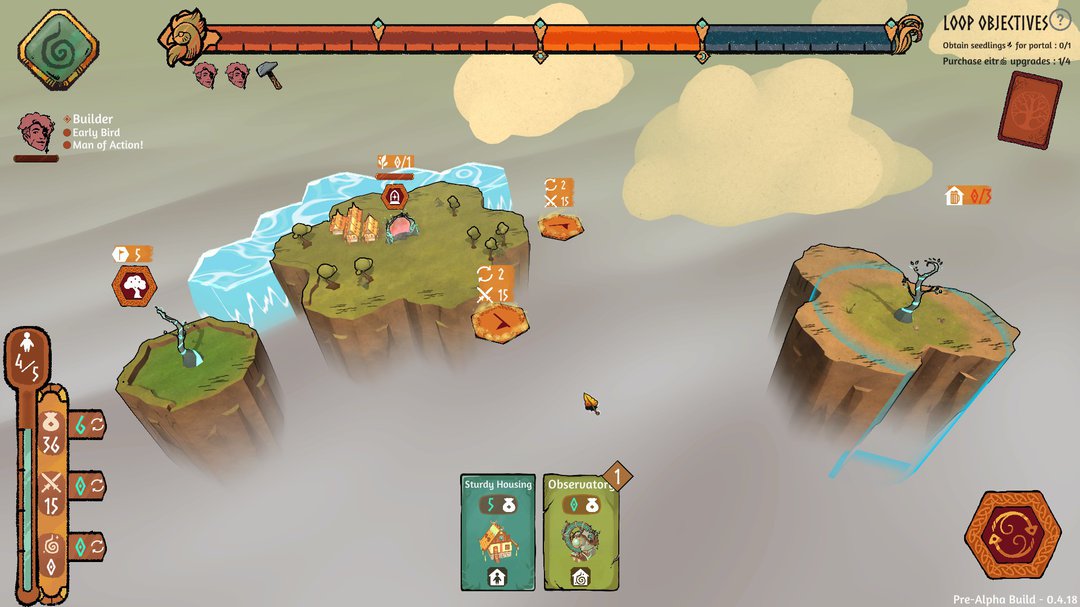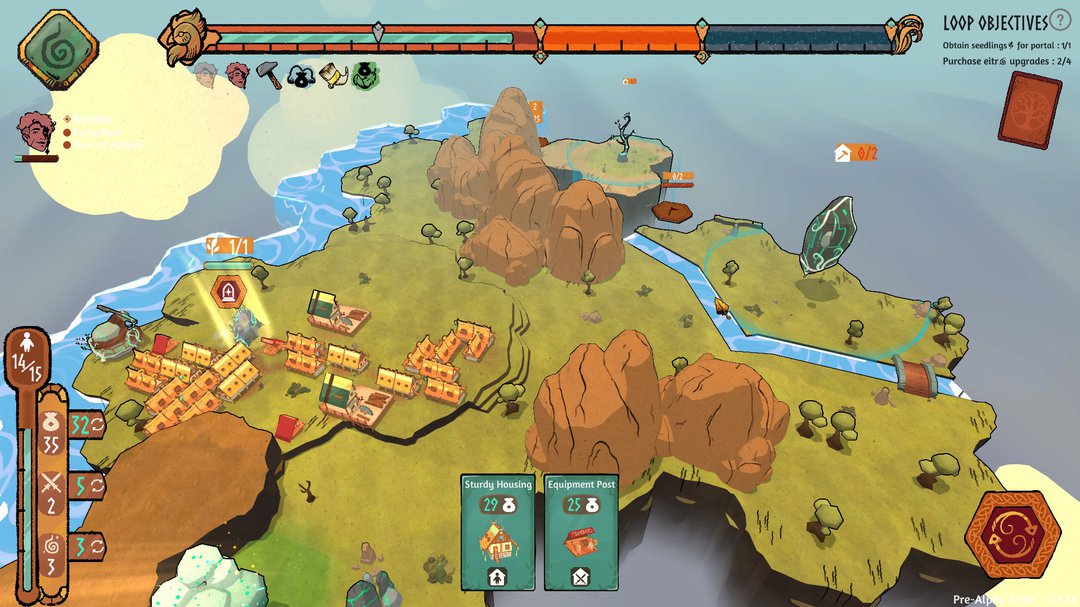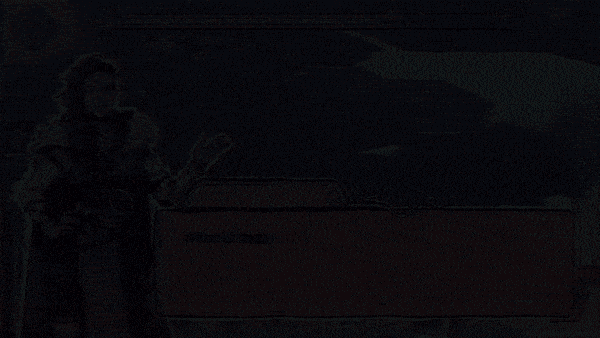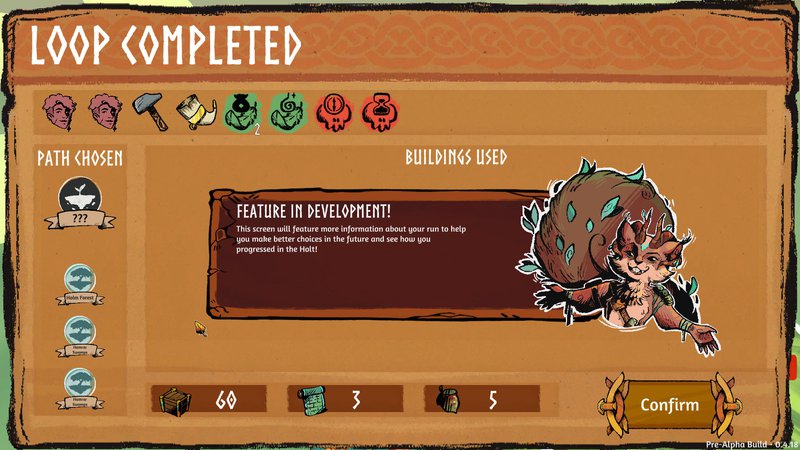Environmentalism has recently become a popular theme in games, and I’m honestly loving the change. I like a good depressing mess of a game as much as anyone, but you need a chance to have some warm-fuzzy feel good vibes too.
Thankfully, that’s where Roots of Yggdrasil comes in to offer a different sort of deckbuilding experience. I’m used to deckbuilding that’s built around destroying cosmic horror hearts ala Slay The Spire or driving through hell (Monster Train), so when I have the chance to make the world a happier, safer place with my cards instead of killing everything in sight? I’m ready to give it a shot. You need something special to stand out in this particular genre, and what Roots is attempting to accomplish might manage to create something unique.
This article was written as a preview. After playing just over an hour of the Roots of Yggdrasil demo on Steam and doing some research, these are our first conclusions about the game based on an unfinished product. You can look at the project in full on the developer's Kickstarter page.
Life After Death
Roots of Yggdrasil is thematically centered on Viking mythology but manages to give it a twist: you are not fighting towards Ragnarok or trying to stave it off. Instead, it's already happened. The end has come and gone, and now the realms are fractured, slowly breaking apart. That’s where you come in: as part of a band of surviving beings, you are attempting to fix the World Tree to bring balance and new life back to the realms.

It’s a great thematic take on familiar mythology that builds into interesting gameplay. It’s also a lot more hopeful than many games in mood: while there is a cycle of destruction that destabilizing the realms (great use of the Void in Norse mythology, or Ginnungagap), your supporting cast of explorers and builders are defiant in their belief that things can get better.
How do you save the world? By finding exposed roots of the world tree that ties the realms together and nourishing them. You do this by creating communities of survivors to first reach the roots, then strengthen them through performing various tasks: building enough houses near a root or exploring enough found map locations are good examples. Once you heal enough roots, you gain enough energy to open up a portal to go even deeper into the realms, saving more roots and unlocking more mysteries that the game has in store.
Building On A Budget
At its heart, Roots is a city builder, but that classification comes with a lot of exceptions. Unlike Cities: Skylines and other mainstays, you are not trying to build just one major metropolis. It’s a rogue-like like Against The Storm in that your towns are temporary, but how you go about building these settlements is incredibly different.

A level first starts out fragmented, with you trying to gain enough might to explore the lost realm...
You only have three resources in Roots: supplies, might, and research/magic. Supplies let you build, might allows you to explore the map and unlock new opportunities, and research unlocks stars of constellations that can give passive buffs to your town. In all the games I played, you always start with just two building options available - the houses you set up to generate supplies, and the equipment camps you then use to gain might. However, by eventually building your population up through building homes, you unlock new building options for that level.
Roots of Yggrasil is a gridless system, but also more abstract than a standard city builder - each building gives you some sort of bonus, but doesn’t need constant maintenance or management of the people inside. Instead, all of the bonuses from placing a city come from where you place it. Equipment camps for example give +2 might per sturdy house in its zone of influence when you place it, but placing it close to another equipment camp will cause penalties.

...With a level further on looking much more filled in as you are more and more successful.
If you’ve ever played the wonderful Islanders, you will be intimately familiar with this system, and it’s great to see it in a new context. It's a little more complex since you can unlock constellations for passive improvements with research, you have support from various companions, and so on, but if you liked Islanders, this game will be for you.
The Void Comes For Us All
Where Islanders only had the requirement of getting more points to keep going to get the highest score possible, Roots of Yggdrasil is a little more complicated. In the demo games I played, I simply needed to restore one root of yggdrasil, but it was obvious that later rounds would require more than one root to be purified. To cure a Yggdrasil root, you first must build up a town enough to unlock the might needed to explore the map. Once you’ve explored enough to connect your starting location to a root, you complete one last variable objective to fix the root, and done!
Of course, it can’t be that easy.

Like any city builder, your resources limit you from expanding too quickly, and that’s where the timer in Roots becomes important. The game is turn based, where your resources refresh when you click ‘end turn’; mismanaging that time will cause problems as the Void rolls in over the map, slowly absorbing the world and all your hard work. While I never had a problem with it during the demo, I did see how the pressure of time can become an issue: the longer you take on one map, the less bonuses you might get on the next. While I enjoy city building games, I find myself only really getting engrossed when there are
A Story Yet To Be Told
I’m really impressed with the basic gameplay that’s on offer with the Roots of Yggdrasil demo, but what excites me is the part that I can’t yet experience: the storyline. While you can play multiple rounds of Roots to really get a feel for gameplay, that’s only one half of the equation. While the developers say that gameplay is inspired by Islanders and other city builders, their approach to story is influenced by Hades.

The art for this game is in a chunky comic-book style that has a lot of character, and one not usually seen for viking themed stories.
Sadly, there doesn’t appear to be voice acting in this game, but this is still an incredibly exciting - and ambitious - idea. As you play, you can choose from various companions to come with you to help heal the world tree, and these companions have their own personalities and boons. It means that as you progress through a set of sequenced levels, you’ll get varying dialogue.
Choosing to embark on expeditions with one companion or another will give you control over which storylines you want to explore next. It’s a great concept, and one I want to see once Roots hits early access. Combine getting solid story with the chunky, line-heavy art of the various characters, and the game as a whole could be very endearing indeed.
A Demo Worth Your Time, A Kickstarter Worth Looking At
Jumping to the point: I really appreciate the basic gameplay of Roots of Yggdrasil, but the game will be something special if they are able to pair a feeling of progress and accomplishment with it. I enjoyed my time with the demo, but unlocking upgrades and new cards at your home base was incredibly limited. You could play individual levels, but the feeling of doing expeditions wasn’t really there. This isn’t a criticism, I just really want to see Roots firing on all cylinders. What I was able to play during the demo was enough to hook me, but we’ll really see how it all comes together when early access starts in the summer of 2023.

I didn’t know Roots had a Kickstarter going until I started writing this article, so I apologize if this part is a bit of an afterthought. Good news: Roots of Yggdrasil has already been funded! If you like the game but don’t want to put money down right away, you can wishlist it and wait for the full release in early 2024. However, if you want to support the developers and get early access this summer, you can choose to back the game now. The kickstarter costs roughly $19 american dollars, so its not too expensive; what you'll want to look for is how much you enjoy the base gameplay of the demo, and decide if you'll want to play through a whole story arc based around that gameplay.
Regardless of your decision, I highly recommend playing the demo on steam when you can: the Kickstarter is going until about the start of March, and so take the chance to give the game a shot for yourself to see if it's for you. I hope you enjoy rebuilding the world as much as I did!